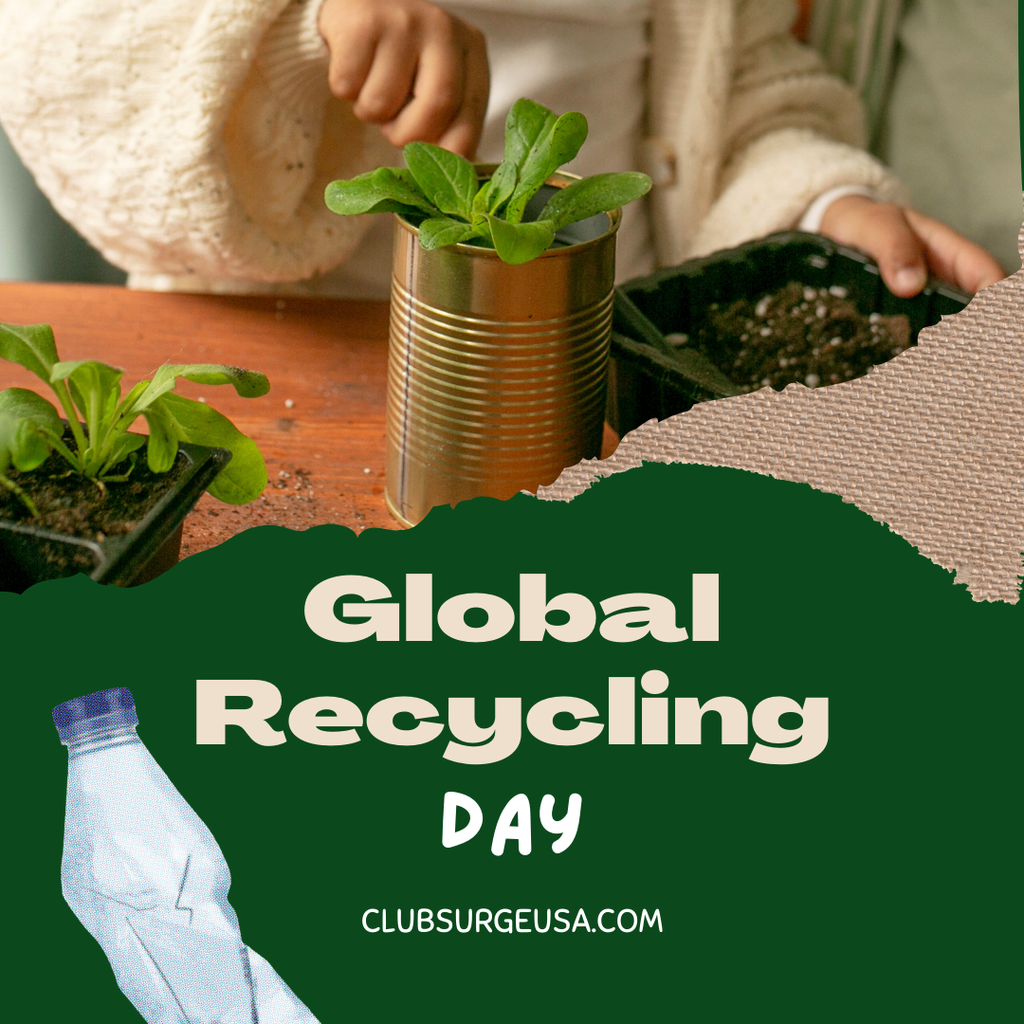
Celebrating Global Recycling Day 2025
A Commitment to a Sustainable Future
On March 18th, 2025, we celebrate Global Recycling Day, an annual event dedicated to raising awareness about the importance of recycling and encouraging individuals, businesses, and governments worldwide to take action for a more sustainable future. Recycling plays a pivotal role in reducing waste, conserving natural resources, and minimizing the impact of human activities on our planet.
The theme for Global Recycling Day 2025 focuses on the need to reduce, reuse, and recycle, and the crucial role that each of us plays in this global movement. From the smallest household efforts to large-scale industrial practices, the day serves as a reminder that we all have a responsibility to contribute to the health of the planet by adopting more sustainable practices.
The Importance of Recycling: Why It Matters
Recycling is a simple yet highly effective way to conserve resources, reduce pollution, and address the growing waste crisis. Here are a few reasons why recycling is so critical:
1. Reducing Waste in Landfills
The average person generates a significant amount of waste each day, much of which ends up in landfills. By recycling materials such as paper, plastic, glass, and metal, we can drastically reduce the amount of waste that piles up, preventing landfills from growing and leaching harmful substances into the environment.
2. Conserving Natural Resources
Recycling helps conserve natural resources by reusing raw materials rather than extracting new ones. For example, recycling paper reduces the need for cutting down trees, while recycling aluminum uses less energy than producing new aluminum from bauxite. By recycling, we are preserving the planet’s finite resources for future generations.
3. Reducing Energy Consumption and Pollution
Recycling materials generally requires less energy compared to producing new products from raw materials. This reduction in energy consumption leads to lower carbon emissions, which helps combat climate change and improve air quality. For instance, recycling aluminum saves up to 95% of the energy required to create new aluminum from scratch.
4. Creating Jobs and Boosting the Economy
The recycling industry is a major contributor to the global economy. According to some estimates, the recycling industry provides millions of jobs worldwide, from collection and sorting to processing and repurposing materials. Expanding recycling programs and infrastructure could create even more jobs and boost economic growth while benefiting the environment.
5. Reducing the Impact of Climate Change
By cutting down on the extraction of raw materials, reducing waste, and conserving energy, recycling helps reduce greenhouse gas emissions, which contribute to global warming. With climate change being one of the biggest challenges of our time, every effort to minimize our environmental impact counts.
How to Celebrate Global Recycling Day 2025
There are many ways to get involved and celebrate Global Recycling Day 2025, whether at home, in your community, or in your workplace. Here are some ideas to help you contribute to this global movement:
1. Learn About Recycling Practices
Start by learning more about what materials can and cannot be recycled. Many people unknowingly put non-recyclable items in their recycling bins, which can contaminate the recycling stream. Educating yourself and others about proper recycling practices can make a big difference. Research local recycling guidelines and get involved in your community’s recycling programs.
2. Organize a Recycling Drive
Organize a recycling drive in your local area, workplace, or school to collect materials that are often overlooked, such as electronics (e-waste), batteries, or clothing. These items require special handling but can be recycled if processed correctly. Partnering with local recycling centers or environmental organizations to make the event a success will help raise awareness and collect more recyclable items.
3. Reduce and Reuse
In addition to recycling, it’s essential to focus on reducing waste and reusing items. Cut down on single-use plastics by opting for reusable bags, bottles, and containers. Repurpose items whenever possible—turn old furniture into new home decor, use glass jars for storage, or create art from discarded materials. These small changes can have a big impact on reducing the amount of waste that ends up in landfills.
4. Support Eco-Friendly Companies
Many companies are now embracing sustainable practices, including recycling, using recycled materials, and reducing waste. On Global Recycling Day, consider supporting brands that prioritize sustainability. By choosing products made with recycled materials or those from eco-conscious companies, you help support the circular economy and reduce the environmental footprint of the goods you buy.
5. Spread the Word
Take to social media to spread awareness about Global Recycling Day and the importance of recycling. Share tips, articles, and infographics to educate your friends and followers about the positive impact of recycling. Encourage others to participate in local recycling initiatives and to take small steps toward a more sustainable lifestyle.
6. Take Action in Your Community
Local governments and businesses are key players in promoting recycling, but they need community support. Get involved in local efforts to improve recycling programs in your area. Advocate for more accessible recycling bins, better collection services, and more educational resources to help the community recycle more effectively.
A Sustainable Future Through Collective Action
Global Recycling Day is more than just a day to talk about recycling—it’s a call to action. Every time we recycle, reduce waste, or choose sustainable products, we’re making a direct contribution to the health of our planet. By adopting sustainable habits in our daily lives, we’re not just preserving resources; we’re also setting an example for future generations to continue working toward a cleaner, greener world.
The efforts we make today will have a lasting impact on the planet tomorrow. Whether it’s through small actions at home or larger community efforts, the key to a sustainable future lies in the collective actions of individuals, organizations, and governments around the world.

















Comments